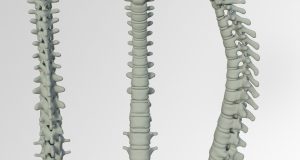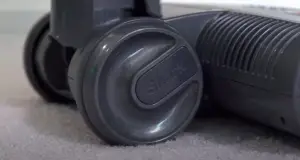Want to know About Are Expensive Vacuums Worth it?
What’s the point in spending a lot of money on a vacuum cleaner if you know it won’t be able to do the job? Are expensive vacuums worth it? You should ask this question to yourself if you are looking for a new vacuum.
There are many factors that go into deciding which vacuum is best for your home and there isn’t one answer. In this article we will discuss some pros and cons of expensive vacuums and help make purchasing decisions easier.
Are Expensive Vacuums Worth it?
The manufacturer determines the price of a Vacuum cleaner, and it varies. Some are relatively cheaper, while others are much more expensive. You’re spoiled for choice when it comes to choosing among all of your options.
There are many different vacuum cleaners available, starting at around $100 and going up to thousands of dollars. Should you buy low-cost or more expensive models?
Before you buy, consider these points
1- Better cleaning power
One of the main factors determining how much you should pay for a vacuum cleaner is whether it has more cleaning power than cheaper models. If your house or apartment was built before 1990, you most likely have old-fashioned “low voltage” wiring. This type of wiring cannot handle modern appliances like high-powered vacuums; if used on them, they can cause circuit breakers and electrical fires.
It’s worth spending money to get an appliance with enough suction power to clean efficiently in your home, even though some may argue less expensive options do not always lack this feature (cheaper ones might be ok). For example, Dyson Cinetic Big Ball Animal Vacuum Cleaner costs $500.
2- Filters for Removing Allergens
Another factor to consider when choosing a vacuum cleaner is what type of filter it has.
The filters are essential for trapping allergens, dust, and dirt particles, making them easier to dump out after you’re done vacuuming. Some cheaper models have only one layer of filtration, but high-end ones come with several layers that can trap more harmful substances in the air than others do.
Some expensive cleaners also include special features like “bacteria-killing” ultraviolet lights or an ionizer. These are beneficial if you suffer from allergies or asthma. It’s important not to confuse these with HEPA filters. The only difference between a HEPA filter and an ionizer is that the former has been certified by the government while ionizers have not undergone this process.
There’s no “right” answer to whether expensive vacuums are worth it. Because there are many factors involved in determining what you should buy (the machine’s price, features, etc.).
If your budget can stretch further, then do so; higher-quality models will perform better than cheaper ones. But if you don’t need all those extra features or high suction power, then stick to something more affordable.
3- Ease of use
It’s not only the price tag that determines how expensive a vacuum cleaner is. The weight, size, and features also play an important role in making it pricier than others on the market.
This might be something to consider after you’ve purchased your new (expensive) machine. Some of them are surprisingly heavy or bulky, which makes cleaning stairs difficult for example; newer models have improved this feature, but older ones do not, so they shouldn’t be considered if you’re short on space.
Another thing worth mentioning about some more pricey models is their ability to transform into tools like upholstery cleaners or carpet shampooers with relative ease. At the same time, cheaper options may need additional accessories to accomplish these tasks, which can add up over time.
So ask yourself: How much do I need this model to do for it to be worth the price? And can it easily switch between tasks, or does it require additional parts and equipment, which will add up over time when they break down (leading you back to question number one)?
This is why sometimes expensive vacuums are not always better than less pricey ones. It all depends on what features you want/need, how often you’ll use them and whether your budget allows for these higher-priced options.
You don’t have to spend a lot of money but just enough so that your machine has good suction power and filters out allergens etc.; remember, most models come with five-year warranties, so if something goes wrong within those years, then the manufacturer.
The Price You Pay For a Cheaper Vacuum
Many of the less costly vacuums have been reported to overheat and shut down suddenly. It’s happened on numerous occasions when there was no logical explanation.
Because you use it to clean floors and carpets, unless they’re made of sturdy, solid material, they won’t be able to withstand typical flooring or carpet bumps and knocks. This can cause parts to break or become damaged easily. Your high-end carpet may be irreparably harmed if you use cheap vacuum which is certainly not the outcome you want.
Choose what is best for you
There are different types of vacuums, each with its own set of features and accessories. The price difference between the machines varies significantly. The presence or absence of add-ons is primarily responsible for the variation in cost.
You can save a lot of money by purchasing a less expensive model that does not include an item you won’t utilize. If you’re not going to use one of the functions, choose a cheaper model that doesn’t have it.
In a Nut Shell
In most cases, the adage, “you get what you pay for,” is true. More expensive vacuum cleaners have been linked to:
- Easier dirt removal.
- Better maneuverability.
- More after-sales service and support.
- The ability to remove smaller particles from the air, such as allergens.
- More durability.
Although more expensive vacuums are typically superior to less-expensive versions, this isn’t always the case. Several vacuums don’t cost a lot but outperform many of the more costly versions.
Final thoughts
We hope that you got the answer to your query about “are expensive vacuums worth it?” In most cases, the higher the price of a product, the better it is. This isn’t always correct, and it should only be used as a guideline. Reading reviews will almost always ensure that you receive more value for your money, regardless of how much or little you invest in a new vacuum.





